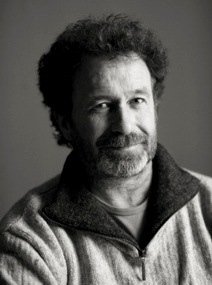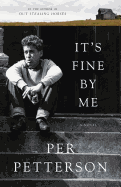It's Fine by Me
by Per Petterson, trans. by Don Bartlett
Although he is best known for his International IMPAC Dublin Literary Award winner Out Stealing Horses, Per Petterson's backlist of Norwegian-published novels has provided Graywolf Press with a rich vein of spare, beautiful prose alive with the soft light and sharp chill of Scandinavia. Originally published in Norway in 1992, two years after the death of Petterson's parents, brother and nephew in a fire, this coming-of-age story mines both the adolescent struggle to form an identity and the emotional defense mechanisms built by the grieving to protect them from the pain of loss.
In 1965, on 13-year-old Audun Sletten's first day at Veitvet School, the headmaster asks him to remove his sunglasses. Audun simply and firmly demurs, "I have scars." When pressed, he adds, "They're so goddamn terrible." Though he is lying and has no physical scars, he has also told a deeper truth. Audun carries his scars inside, and he has no intention of revealing the stories behind them. Over the next five years, Audun holds tightly to his secrets. No one is allowed to know of the abuse his drunken father inflicted on his family before disappearing; the tragic car accident that took the life of Audun's delinquent younger brother, Egil; or his concern that his sister, Kari, has taken up with a layabout. Only his sister knows the most dangerous secret: Audun has seen their father on the streets of their town and lives in fear that he has come to terrorize the family again. Audun navigates a realm of specters unimaginable to his peers.
Even his best friend Arvid Jansen--the main character of Petterson's previous novels In the Wake and I Curse the River of Time--finds Audun an enigma. Arvid especially cannot understand why Audun is considering dropping out of school. But despite his desire to become a writer, Audun worries that he doesn't belong in school. He asks, "Did Jack London finish school... or anyone else worth reading?" Despite Arvid's appalled reaction, as the narrative slides back and forth through Audun's teen years and the occasional childhood memory, Audun feels increasingly out of place in secondary school and unable to relate to his peers, admitting that without Arvid, he would "feel naked and cold and lost in this world." From seventh grade through his employment as a worker in a printing factory at age 18, Audun uses a refrain of "It's fine by me" to disguise his perturbation at the misfortunes of his life and the unfeeling actions of others, even from himself.
 While readers who need a linear, action-filled plot may not care for the shifting time periods or the emphasis on introspection, readers who love deep examinations of character will find themselves caught in Audun's voice like a ray of light in a prism, their emotions filtering through in a spectrum of compassion, commiseration and admiration. Like Audun's beloved Ernest Hemingway, Petterson's prose is brisk and unornamented, perfect for evoking the austere beauty of the Norwegian landscape and yet packed with emotions both powerful and subtle. Petterson uses Arvid's political activism as well as Audun's musical tastes to create the feel of growing up 1970s Norway, an experience that here appears similar to growing up in America during the same time period. No matter the reader's nationality or background, Audun's struggle to reconcile his own identity with the larger world is easily recognizable to anyone who remembers the difficulties of adolescence. His passion for literature, sensitivity to the trials of his friends and family, and determination to carve his own path give the lie to Audun's claimed acceptance of life's pitfalls.
While readers who need a linear, action-filled plot may not care for the shifting time periods or the emphasis on introspection, readers who love deep examinations of character will find themselves caught in Audun's voice like a ray of light in a prism, their emotions filtering through in a spectrum of compassion, commiseration and admiration. Like Audun's beloved Ernest Hemingway, Petterson's prose is brisk and unornamented, perfect for evoking the austere beauty of the Norwegian landscape and yet packed with emotions both powerful and subtle. Petterson uses Arvid's political activism as well as Audun's musical tastes to create the feel of growing up 1970s Norway, an experience that here appears similar to growing up in America during the same time period. No matter the reader's nationality or background, Audun's struggle to reconcile his own identity with the larger world is easily recognizable to anyone who remembers the difficulties of adolescence. His passion for literature, sensitivity to the trials of his friends and family, and determination to carve his own path give the lie to Audun's claimed acceptance of life's pitfalls.
Petterson fans may enjoy the chance to see Arvid Jansen as an idealistic young man in contrast to the familiar adult Arvid, but Audun's vulnerability and strength of spirit mark him the uncontested hero. Recapture the pain and bravery of adolescence with this sliver of Northern light. --Jaclyn Fulwood
photo: Finn Ståle Felberg








 Since 1994, Fiona McCrae has served as publisher and director of Graywolf Press, a leading American nonprofit literary publishing house with many award-winning writers on its list. McCrae took some time from her hectic travel schedule to speak with us about
Since 1994, Fiona McCrae has served as publisher and director of Graywolf Press, a leading American nonprofit literary publishing house with many award-winning writers on its list. McCrae took some time from her hectic travel schedule to speak with us about 